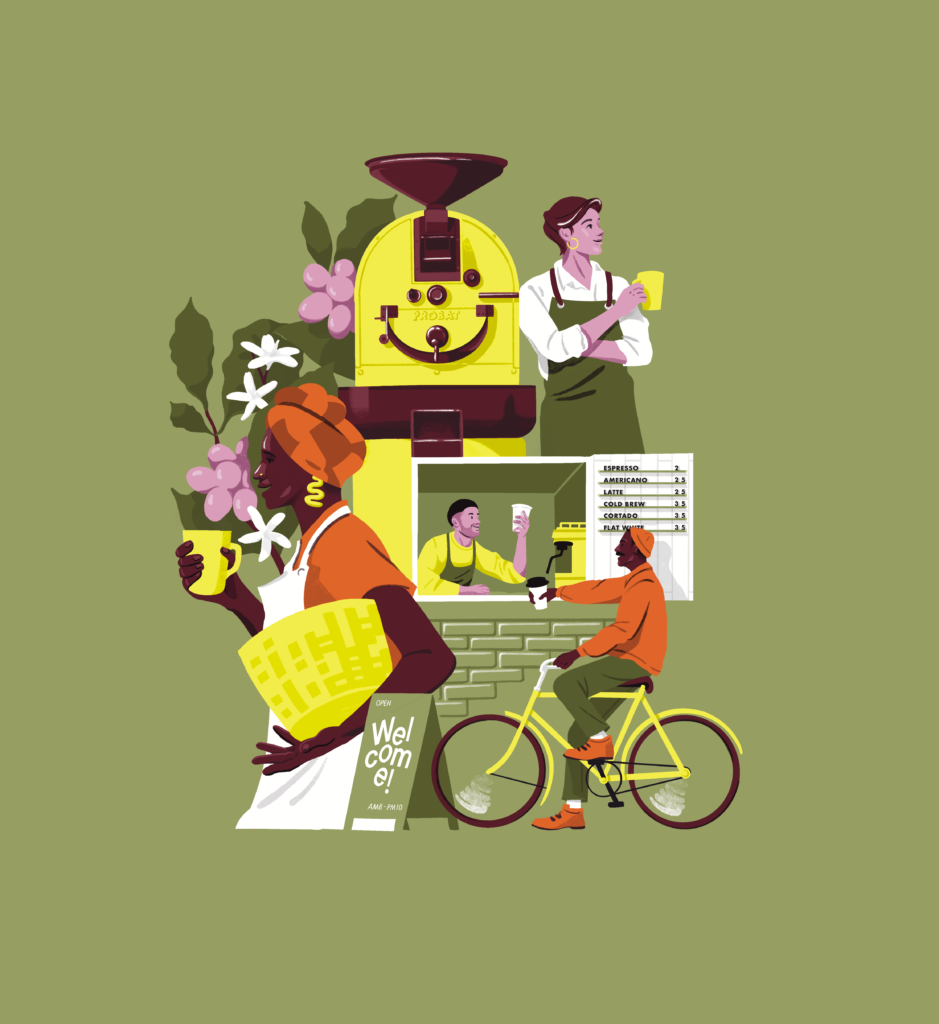
When I began writing this article I was reminded of my own early days as a barista and how coffee was an integral part of meeting new people and experiencing cultures. Since then, I have grown to appreciate the bond between communities and coffee and I have met many others whose story starts the same way. Since the theme of our latest issue is “Community”, we wanted to feature stories that exemplify the strong connection between coffee and communities. And while there are countless stories to share, we have chosen to focus on a few that highlight the impact coffee has had on communities both in times of conflict and social change as well as in moments of joy, unity and connection. From two co-roasteries in Australia and Singapore to a female co-op in Peru and a café in Ukraine, we are excited to introduce you to these inspiring stories that showcase the true essence of the connection between coffee and communities. So grab a cup of your favorite brew, sit back, and immerse yourself in these inspiring tales of how coffee brings us together.
Roasting Together
Co-roasting spaces have emerged as vital hubs within the specialty coffee industry. These spaces serve a specific purpose: to provide coffee professionals with the facilities, equipment, and community they need to excel in their craft. By offering shared roasting equipment and a collaborative atmosphere, co-roasting spaces are revolutionizing the way coffee is roasted.
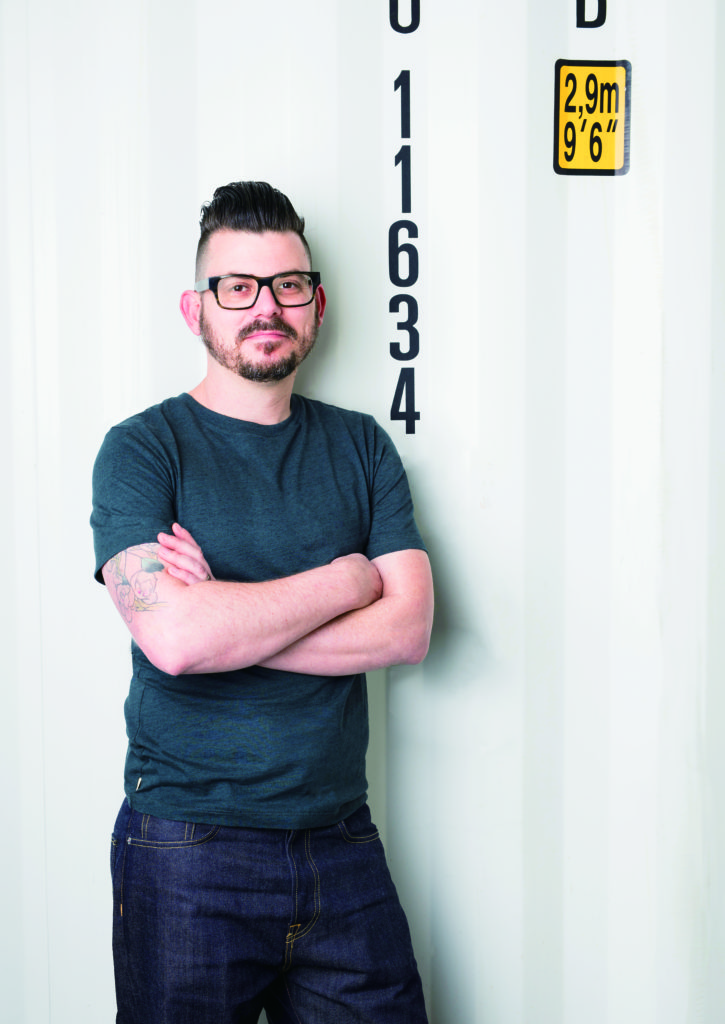
Craig Simon, Founder of Criteria Coffee, three times Australian Barista Champion, WBC Finalist 2014, and Q Grade Instructor.
In a recent interview, Craig Simon, the founder of Criteria Coffee, a communal roasting space in Melbourne, Australia, shared insights into his journey within the coffee industry and how co-roasting is fostering a sense of community. With over two decades of experience, Craig’s story is marked by a transition from a career in music to becoming a prominent figure in the Melbourne coffee scene. He worked for Veneziano Coffee Roasters in Melbourne for 12 years, where he gained extensive experience in coffee roasting and related aspects.
Craig’s approach allows coffee enthusiasts to use the roasting equipment and facilities as needed. This means that whether you’re a café owner, an aspiring coffee entrepreneur, or just a coffee lover who wants to experiment, you can access state-of-the-art equipment without a hefty investment. Resource sharing enhances efficiency, reduces costs, and encourages collaboration, making it a win-win situation for all involved.
Co-roasting spaces also inspire innovation in the coffee industry. As Craig emphasizes, “The quality of coffee being roasted in our space from our members is impressive.” The collaborative environment encourages coffee professionals to push the boundaries of their craft. This innovation extends to new roast profiles, creative blends, and exploring unique coffee origins. The diverse community within these spaces ensures that the coffee industry continues to evolve and excite coffee enthusiasts worldwide.
Established in October 2018, Criteria Coffee serves as a hub for coffee professionals and enthusiasts. The business charges customers based on the time they spend roasting, providing access to equipment and facilities. Craig discussed his vision for Criteria Coffee, which centers on fostering a supportive community where knowledge sharing thrives, “I really want them to understand the process so that they are autonomous when they roast again, experiment, and develop their own style. Plus, I really enjoy seeing how much enjoyment everyone is getting out of it. How good they are at roasting. It’s really rewarding for me to come in there and see the community thriving.” Craig said.
The sense of community has evolved over the years, reflecting the changing dynamics of the coffee industry. Craig emphasized that when he started in coffee in the early 2000s, there were few resources available for learning the art of coffee roasting . The industry then predominantly focused on espresso blends and milk-based beverages. However, in more recent times, there has been a significant shift towards single-origin coffees and specialty coffee experiences. Criteria Coffee has played a vital role in facilitating this transformation by providing a space for coffee aficionados to learn, collaborate, and experiment.
Throughout our interview, Craig highlighted the community-building aspect of Criteria Coffee and its role as a knowledge-sharing platform. The facility hosts various events, cuppings, and workshops, connecting coffee farmers, green bean importers, roasters, and cafe owners. “I’ve hosted quite a few coffee events. We host events for visiting coffee farmers. We’ve had coffee producers come through and give talks. So it seems to be a bit of a meeting place.” Craig said. This is a testament to how co-roasting spaces bring people together, fostering an environment where coffee professionals can exchange ideas, techniques, and insights. Whether you’re a seasoned coffee roaster or a newcomer to the industry, these spaces encourage a culture of continuous learning. More importantly, Craig noted the importance of ensuring that everyone in the community contributes positively to maintain the cooperative spirit of the space.
In addition to his work at Criteria Coffee, Craig also outlined his involvement in the broader coffee industry. He shared his experiences in the Australian coffee championships, his participation as a sensory judge in international coffee competitions, and his role as a green coffee grader and instructor. Craig’s journey in the coffee industry showcases the transformative power of communal spaces like Criteria Coffee in fostering a strong and supportive coffee community, encouraging knowledge sharing, and contributing to the evolving landscape of specialty coffee.
It’s Not About The Brew; It’s About The Crew
In 2014, a similar story was brewing north-west of Australia, in the small country of Singapore. What started as a deep-seated passion for coffee evolved into a pioneering co-roasting space, setting the stage for a thriving coffee community. Founded on the principle of sharing knowledge and love for the coffee bean, Compound Coffee Co. quickly became a hub where coffee enthusiasts, from novices to seasoned professionals, gathered to learn, collaborate, and dream big.
From the inception, Compound Coffee Co. prioritized knowledge sharing. Offering workshops based on extensive research and experimentation, the space enabled individuals, even those with no prior roasting experience, to master the art of coffee roasting. It was an ambitious mission – to demystify the notion that roasting was reserved for a select few. Compound Coffee Co. Executive Officers, Stefanus and Odelia Goana tell me that the feedback was heartening, “We have received amazing feedback from first-timers. People learnt that coffee roasting can be therapeutic and that it’s not as difficult as it seems. However, to be a professional, of course, you must practice for hours and hours. Just like mastering ballet, one needs to practice diligently, and maintain it. It doesn’t happen in one night.”
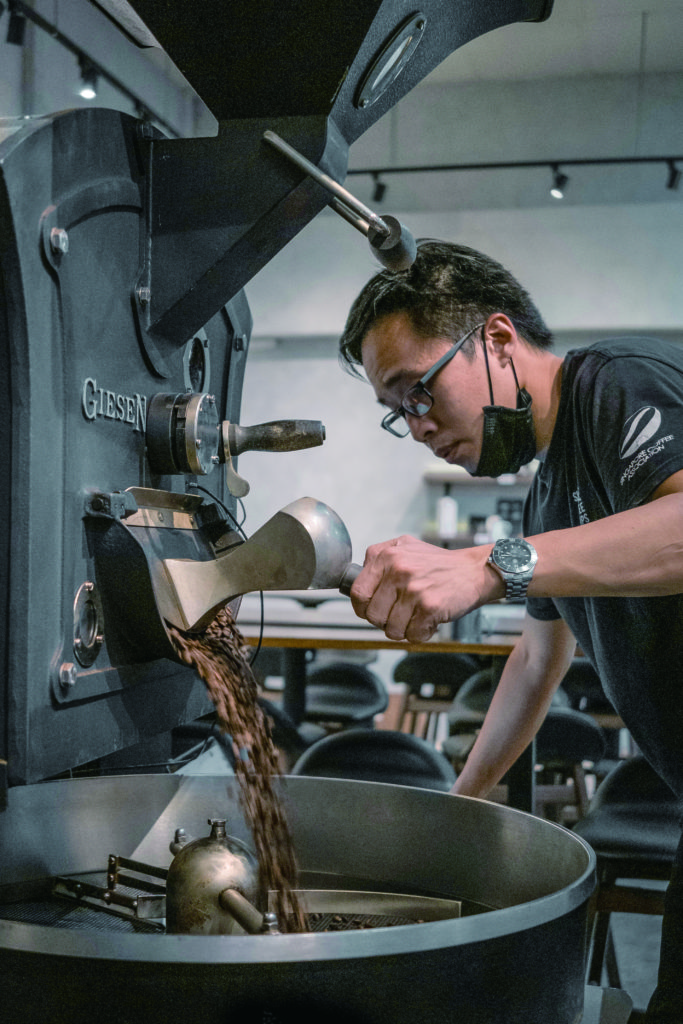
Ong Shi Chun, Singapore’s 2019 Coffee in Good Spirits Champion, roasting at Compound Coffee Co. Photo / Maximillian Wee
The magic of Compound Coffee Co. extended beyond just coffee beans. It was a place where a diverse group of people felt like family, coming together to play and learn. Workshops, training sessions, and “public cupping parties” became a regular feature. In the words of the founders, “If you’ve ever wondered about coffee’s secrets, we’re here to spill the beans and support you on your coffee journey.” Stefanus says.
But the heart of Compound Coffee Co. went beyond its doors. Recognizing the plight of small coffee farmers, the company embarked on a mission to make a difference. By partnering with a sister company, Compound Coffee Co. aimed to empower these unsung heroes by starting a farm in East Java, Indonesia. They envisioned a program where anyone from anywhere in the world could adopt a coffee tree, connect with the farmer’s family, and improve their livelihoods.
What truly sets Compound Coffee Co. and Criteria Coffee apart is their collaborative spirit. Every client and customer is considered a valued partner, not a competitor. Both celebrate the success of their clients, firmly believing in the power of collaboration.
The success stories that have arisen from both Compound Coffee Co. and Criteria Coffee tell a compelling tale. They’ve introduced unique coffees to the public, helped cafes craft signature flavors, and contributed to the rise of now-famous specialty coffee roasters. In a world where coffee is more than just a drink, co-roasting spaces seem to have become an emblem of community, collaboration, and the pursuit of dreams.
Competing Together
The words “community” and “compete” have a common thread in the Latin root word “com-” which means “together”. In “community”, the prefix “com-” emphasizes the idea of people coming together, sharing common interests, and forming a group. Similarly, in “compete”, the prefix “com-” suggests striving or contending together, indicating a sense of competition among individuals or groups aiming for the same goal. So, both words share the notion of people coming together and working towards something, albeit in different contexts.
Coffee competitions have become a vital aspect of the specialty coffee industry, bringing together professionals and enthusiasts alike in celebration of excellence in the craft. These events not only showcase the skills and talents of the participants but also serve as opportunities for networking and knowledge exchange. The role of coffee competitions goes beyond simply awarding winners with prizes and recognition. Through fierce yet friendly competition, baristas, roasters, and latte artists push themselves to constantly improve their craft, ultimately raising the bar for quality in the industry as a whole.
There are various types of coffee competitions that cater to different aspects of the trade. Barista competitions test a contestant’s ability to prepare perfectly crafted espresso beverages while showcasing their knowledge on flavor profiles and brewing techniques. Roasting competitions challenge contestants to create the best roast profile for a specific coffee, showcasing their understanding of the science and art behind roasting. Latte art competitions put the spotlight on the visual aspect of coffee-making, requiring contestants to showcase their creativity and technical skills in pouring intricate designs on top of milk-based beverages.
Aside from promoting excellence and healthy competition within the specialty coffee community, these events also serve as community-building opportunities. Coffee enthusiasts from all walks of life come together to support and celebrate their favorite baristas or roasters, creating a sense of camaraderie among like-minded individuals. Through networking opportunities and knowledge exchange, participants are able to learn from each other and form valuable connections that can lead to new collaborations and business ventures.
Coffee competitions also have a significant impact on the coffee industry as a whole. By setting trends and pushing boundaries, these events drive innovation and bring new techniques and flavor profiles to the forefront. Not only do they recognize and celebrate talent and skill, but they also inspire others to constantly improve and push the limits of what is possible in the world of specialty coffee.
Behind every competitor in a coffee competition lies a unique story of dedication, passion, and hard work. These events serve as a platform for individuals to showcase their personal journeys in the industry, from overcoming challenges to achieving triumphs. Through their stories, they inspire others to pursue their own dreams in the competitive world of coffee.
As the specialty coffee industry continues to evolve, so do coffee competitions. New formats are constantly being introduced, catering to a wider range of skills and interests. Inclusivity and diversity are also becoming increasingly important, with efforts being made to make these events accessible to individuals from all backgrounds and cultures.
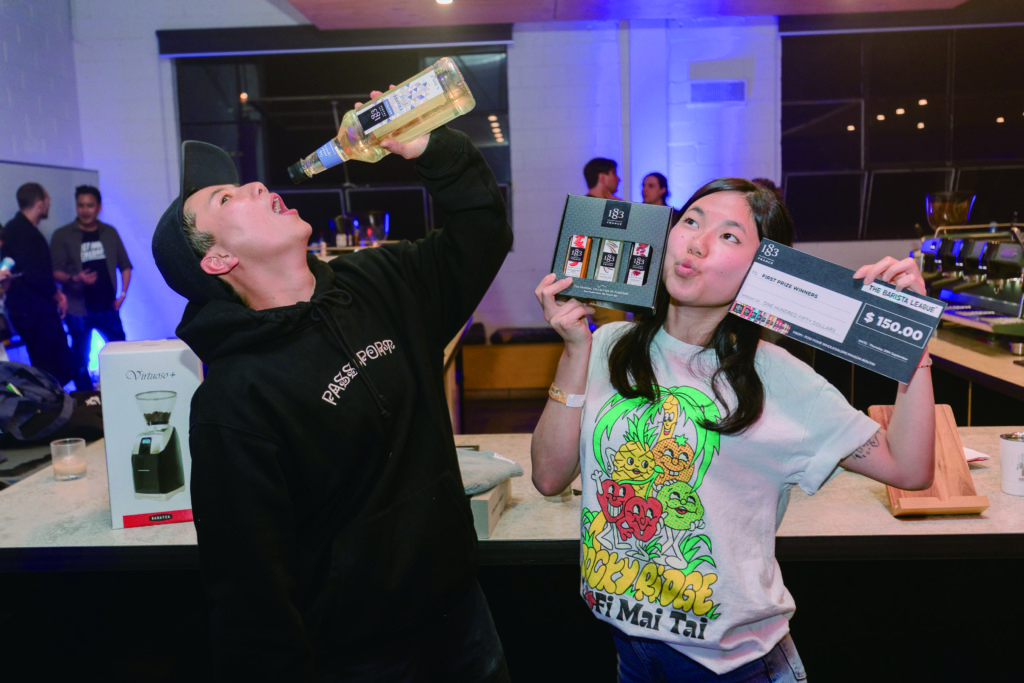
Aum (left) and Melanie (right) after their second win. Photo / The Barista League
Melanie Sugeng is a two-time winner of The Barista League, a coffee competition like no other. In this fast-paced and fun event, baristas compete in a series of challenges that test their speed, accuracy, creativity, and teamwork. I asked Melanie how her participation in the competition impacted her sense of community within the specialty coffee industry, “Being able to meet baristas and coffee professionals from all over the globe who share one really important thing in common: a love for coffee. Participating in The Barista League has given me such an opportunity to connect with coffee lovers all over the world and create meaningful, lasting relationships, and that has only intensified my sense of community in this amazing industry. Specialty coffee is all about community, or that is definitely what made me fall in love with the industry anyway. I have never felt a more wholesome representation of collaboration than at The Barista League.”
The competition itself requires participants to engage in a series of rounds that challenge their creativity as baristas, not only in coffee-making but also in crafting specialty mocktail drinks. Competitors enter the competition with limited knowledge of what they will be working with, thus forcing them to rely on their on-the-spot creativity. It also involves distinguishing oneself from other teams within the confines of coffee-making.
“It really is ‘not your usual barista competition’ – there is something about the way the project managers curates this particular event that removes it from every competition I’ve been in. The value of community shines through in a way that I can’t really describe: maybe it’s the way the events are set up, or the atmosphere that is created. I strongly recommend going to one if they’re ever visiting your area so you can understand what I mean when I say that the spirit of this particular competition is second to none.” Melanie says.
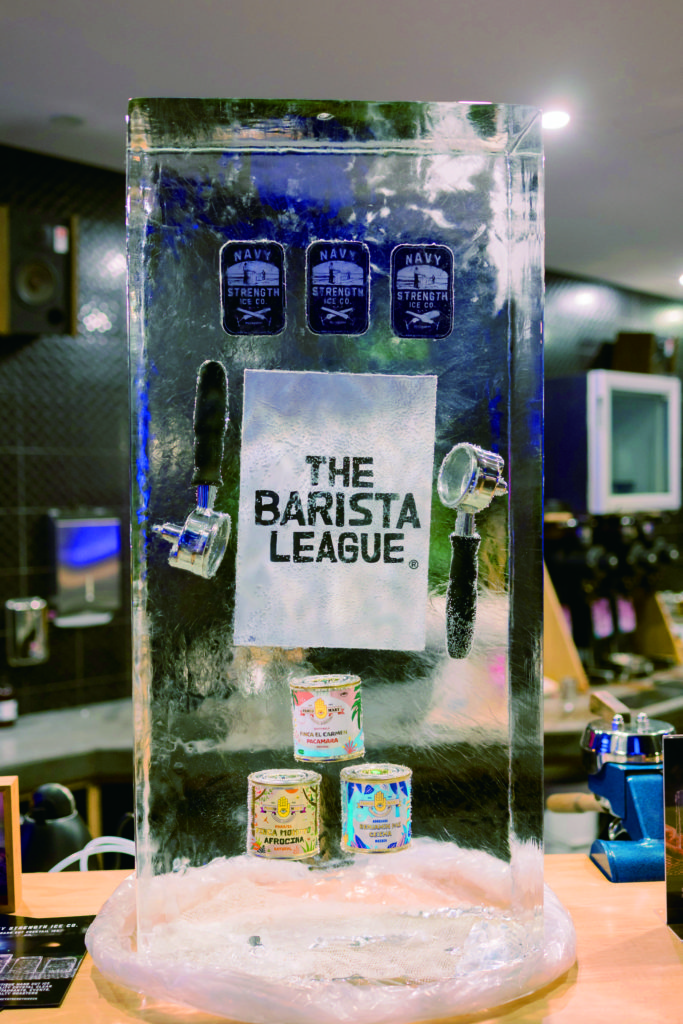
Photo / The Barista League
Coffee competitions play a crucial role in the specialty coffee community, promoting excellence, fostering a competitive yet collaborative spirit, building relationships and connections, driving innovation and trends, recognizing talent and skill, and inspiring others to constantly improve. As the industry continues to evolve, these events will continue to serve as platforms for individuals to showcase their passion for the craft while pushing the boundaries of what is possible in the world of specialty coffee.
Embracing Hyperlocalism
The concept of hyperlocalism has been gaining traction in recent years, particularly in the food and beverage industry. It refers to sourcing ingredients, products, and services from within a limited geographical area, typically within a community or neighborhood.
This movement emphasizes the importance of supporting local businesses and creating meaningful connections with those around us. By embracing hyperlocalism, businesses can make a positive impact on their communities and foster a stronger sense of locality.
In his article, Unlocking the Potential of Place Marketing (Toposophy, 2023), Peter Jordan points out that the importance of local identity, community solidarity, and pride in local places is resonating with residents and visitors alike. Local businesses are focusing on widening their appeal based on place and provenance. Personal identity and values are also playing a greater role in decision-making, including how people identify with places. Sustainability is becoming increasingly important, intertwining with the quality of the environment and the wellbeing of communities.
One of the key aspects of hyperlocalism is sourcing ingredients and products from nearby farms and businesses. This not only supports the local economy but also ensures that products are fresh, environmentally sustainable, and often unique to the area. Businesses that embrace hyperlocalism can also utilize it as a marketing strategy. Building meaningful relationships with customers through personalized interactions, and leveraging the locality of their products or services can set them apart from larger, chain businesses. By highlighting their commitment to supporting local producers and artisans, businesses can attract customers who value community involvement and sustainability. This can ultimately lead to increased customer loyalty and success for the business.
One of the most significant benefits of hyperlocalism is its positive impact on communities. By sourcing from within the neighborhood, businesses can contribute to economic growth and provide support for smallscale producers. Additionally, hyperlocalism fosters a sense of solidarity within the community, as people come together to support and celebrate local businesses. This strengthens bonds between neighbors and creates a more vibrant and connected community.
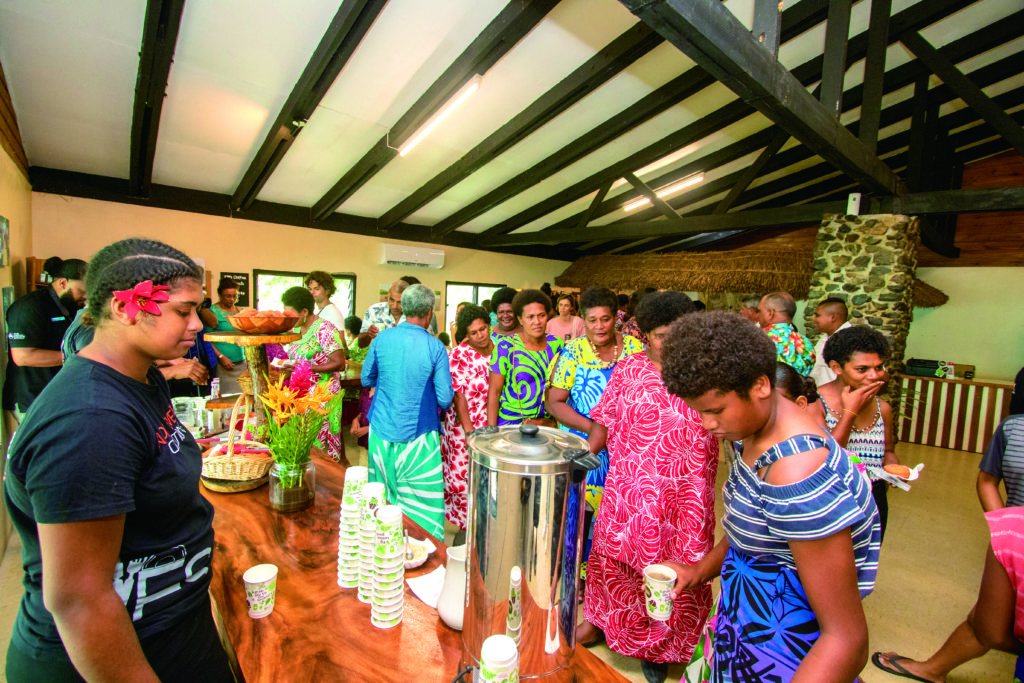
Photo / Bula Coffee
Bula Coffee’s story perfectly embodies the concept of the hyperlocal movement. Bula Coffee is a vertically integrated bean-to-cup coffee company that was founded in 2011 by Luke Fryett in Fiji. The company works directly with remote villages in Fiji to harvest, process, and market wild coffee, providing them with a sustainable livelihood. The company also offers tours and initiatives to create a greater appreciation for locally- grown coffee, empowering women and supporting families in their communities.
“We always say we know our farmers by name, and we shake the hand that picks the coffee. In times of natural disasters, we have actively provided shelter to our farmers, offering them a safe haven. Once the disaster has passed, we swiftly enter the affected villages to assess the situation and promptly deliver emergency aid. We then continue our efforts by assisting them in their recovery and reconstruction process. We have empowered women, enabling them to confidently express themselves in village meetings. There were developers who sought to demolish one of our villages for a project, including the precious wild coffee. However, the women united and successfully halted this destruction. They recognized the significance of this coffee not just as their source of income, but also as a valuable resource that they needed to safeguard,“ Luke says
Bula Coffee’s commitment to the hyperlocal movement has not only empowered small coffee farmers and their communities but also contributed to the preservation of Fiji’s unique wild coffee. Fiji might be a small island but there is a lesson to be learned from Bula Coffee’s success. By embracing hyperlocalism, businesses can make a significant impact on their communities and bring about positive change.
As consumers continue to prioritize sustainability and authenticity, hyperlocalism is likely to become even more prevalent in the coffee industry. Overall, the concept of hyperlocalism goes beyond just sourcing ingredients from within a limited geographical area. It also encompasses building meaningful relationships with customers, fostering community solidarity, promoting sustainability, and making a positive impact on the local economy. As such, it is not just a trend but a movement that has the potential to create significant change in the food and beverage industry.
A Local Cafe with a Mission
As neighborhood cafes continue to thrive and evolve, we see how their impact goes beyond just providing a space for people to grab a cup of coffee. These cafes have become the heart and soul of local communities, creating a sense of belonging and connection among its patrons.
Melbourne is often considered the coffee capital of the word and Melanie who lives and works in the city, thinks neighborhood cafes are the reason behind this, “Melbourne especially has a thriving local cafe scene. I would argue that it makes up a huge part of Melbourne’s revered specialty coffee culture. The reason we are one of the hot spots of the coffee world is because of our amazing neighborhood cafes. The sheer density of awesome cafes in our city is pretty impressive. I think the established cafe culture here inspires fresh faces to join the industry which in turn bring people together and through these amazing spaces create a sense of belonging for coffee professionals and coffee lovers alike.”
Indeed, one of the most significant contributions of neighborhood cafes to their communities is their ability to bring people together. These establishments serve as gathering spots where individuals from all walks of life can come together and connect over a shared love for coffee or simply enjoy each other’s company. This sense of community fosters social connections, creating a support system that goes beyond just caffeine boosts.
In recent years, we have seen an evolution in the role that neighborhood cafes play within their communities. While their main purpose may still be to serve quality coffee and pastries, these cozy establishments now offer so much more. From hosting events such as open mic nights and book clubs, to providing workspaces for freelancers or students, cafes have expanded their offerings to cater to the changing needs and interests of their customers.
Neighborhood cafes also play a vital role in promoting local culture within their communities. From showcasing local artwork on their walls, to featuring live music performances by local musicians, these establishments help celebrate the unique characteristics and talents of their community. This not only adds to the charm and character of the cafe but also contributes to a strong sense of local pride. In addition to promoting culture, these cafes also have a significant economic impact on their communities. By sourcing their ingredients from local suppliers and partnering with nearby businesses, neighborhood cafes help support and empower the local economy. This creates a ripple effect that benefits not just the cafe itself but other small businesses in the community as well.
But what if a local community could make a difference on a global scale? The Café Femenino project is a revolutionary initiative that aims to empower women in coffee-producing communities worldwide. It all began in 2003 when 464 women in Northern Peru co-founded the project with the Organic Products Trading Company. Frustrated by the lack of recognition and fair compensation for their work in the coffee industry, these women decided to take matters into their own hands.
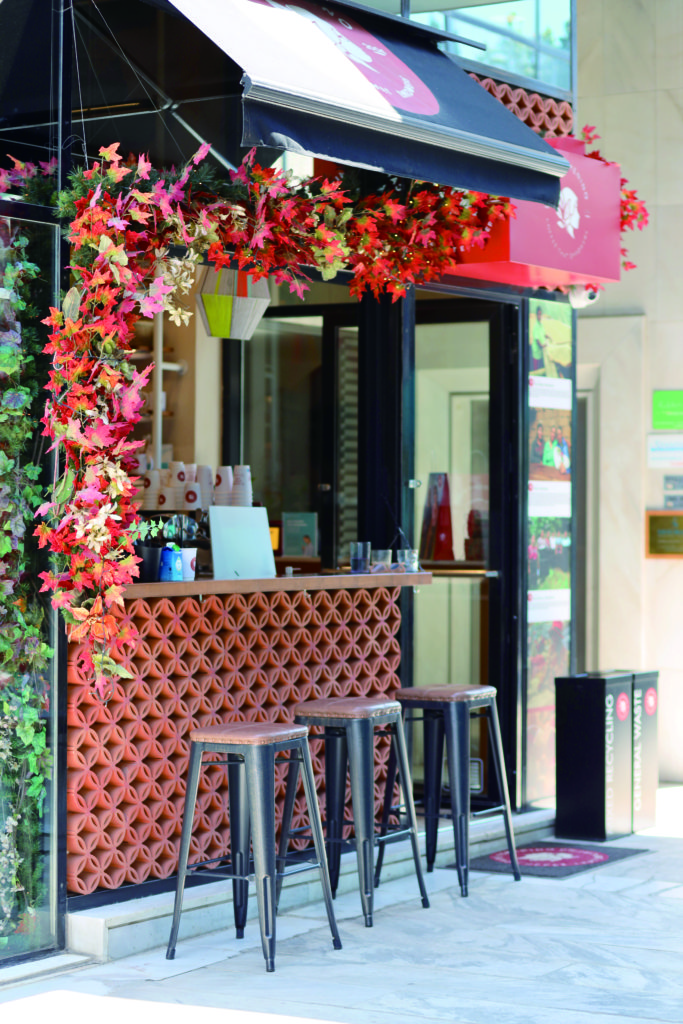
Photo / Café Femenino
The Café Femenino project not only recognized women as coffee producers but also ensured that they were paid fairly for their production. Over time, the project has grown into a foundation that empowers women in remote growing regions across nine coffee- producing countries. The impact of this project on coffee-growing communities has been immense.
Through Café Femenino, women have been able to earn decent incomes, assume leadership roles, obtain land titles, and receive the credit and acknowledgment they deserve. Most importantly, the project has empowered women, boosting their confidence and leading to positive changes such as increased girls’ attendance at school, reduced instances of physical, emotional, and sexual abuse within households, increased family income, and greater male participation in childcare.
Over on the other side of the world, Greek resident Marilena Kouidou, had been in coffee trading for more than 20 years, when she came across the concept of women-produced coffees being traded in Europe during the beginning of the Covid years. This concept fascinated her, given her extensive experience in the sector and her family’s long-standing tradition in coffee trading since 1926. Having observed the heavily male-dominated nature of the sector throughout her career, Marilena had always been puzzled and uncomfortable with the limited participation of women.
As she delved deeper into the topic of gender inequality in coffee, Marilena discovered the Café Femenino project. The idea thrilled her, and she found herself inspired by the stories of the women who were actively involved in the Café Femenino cooperatives, “I shared my excitement and findings with two other women friends which also found it an amazing project and so a new business idea was created for a retail store that would just serve coffees sourced by the female cooperatives of the Café Femenino project. We contacted the Café Femenino foundation in the U.S. and its amazing and admirable director Connie Kolosvary and we got the official license of opening the first Café Femenino retail store in Europe. We finally opened it at the end of July 2021.” Marilena tells me.
The founding idea behind Café Femenino Greece was that by opening a retail store and bringing everyday consumers in contact wi th the cause and the project, awareness would rise regarding the issue of gender inequality in the coffee sector, especially in the producing countries, and the mission of the Café Femenino project. The Café Femenino logo was placed on the cup along with some quotes, created by their advertising company, to portray the whole idea. Consumers walking around with the cup became walking advertisements for the project . Social media has played a significant role in spreading the word about the cause, the project, and the impeccable quality of Café Femenino coffee. Additionally, the baristi at Café Femenino excel in explaining the story and mission behind it to each customer.
When I asked Marilena about the community impact, she told me that the Café Femenino project has had a profound impact on both a global and a local scale, “One of the most fundamental needs of human beings is the sense of belonging in a group and that is what communities are all about. The Café Femenino project emphasizes and enhances the sense of community in a double way both locally and globally. Globally, in producing countries, it has managed to bring together women in cooperatives to work in the most efficient way in order to promote their financial interests but also for them to have a strong sense of belonging, a clear vision and a platform that will support their empowerment . Locally, in consuming count r ies i t promotes a sense of belonging , as one feels that they can help even with a very small gesture , like buying and drinking a flat white from the Café Femenino store, a much bigger cause. The whole project believes in trying to bring out the kind part that exists in all humans, helping us feel as part of a group, community, who would like to ‘make this world a better place’. And as we know well, at the end this succeeds in having an impact because ‘every little helps’.”
The Café Femenino Greece project is built on a strong foundation of financial support for the Café Femenino global project. As a first step, when the green coffee is imported from the producing countries to Greece before roasting, a 20% premium is paid on the actual price of the coffee. This premium is then directly reinvested in the women’s cooperatives according to their specific needs. Additionally, for every cup of coffee sold in the store, 0.025E is contributed as financial aid to the communities of the women coffee growers. The women themselves decide how this aid can be most beneficially utilized.
Marilena tells me that the reaction of the local community to this new project has been really moving, “From the very beginning people were attracted to this different but also authentic concept. That was what made them try our product by coming to the store or ordering at home. Yet, I can not emphasize enough that our customers became loyal and engaged due to the amazing quality of the coffee. One has to understand that this is one of the key points –beliefs of the Café Femenino project. This project is not about charity and philanthropy, the women at the Café Femenino cooperatives are educated and produce coffees of the highest quality. They are all certified as specialty coffee, are Faitrade- and Organic-certified. This is the reason our customers are repeaters’.”
The amazing coffee, the inspiring story of female empowerment, and the incredible loyalty of customers who continue to come back for more, all contribute to making Café Femenino Coffee an advocate for building a strong and supportive community, both on a local and global scale.
Facing Conflict Together
The Russian invasion of Ukraine has been ongoing for a year and a half, leaving the tension in Ukraine at a high level. Despite the challenging circumstances, Ukrainian citizens continue to face daily difficulties in their quest to protect their freedom and safety. In the midst of this conflict, small businesses have demonstrated resilience by maintaining their operations as smoothly as possible.
One Love, a specialty coffee roaster with six coffee shop locations in Kyiv, has been serving the community since the onset of Russia’s invasion. Partnering with Seven Seas Coffee Roasting, a veteran-owned coffee roaster from San Diego, One Love has managed to keep its doors open. Entrepreneurs in Kyiv were forced to adopt survival strategies when the Russian invasion began, prioritizing the safety of their staff and the continuity of their businesses. These measures included reducing expenses and scaling back product production.
Eric Dobbs, the owner of Seven Seas, made a visit to Kyiv in the fall of 2022. Bringing medical supplies and $10,000 raised by his company, Dobbs aimed to support Volodymyr Zadiraka, the founder of One Love. His experience in Kyiv inspired him to establish the Seven Seas Foundation 501c3, a foundation dedicated to supporting the café’s ongoing operations.
Since the early days of the invasion, One Love has been providing over 900 meals daily to hospitals, military personnel, and first responders, relying solely on their own resources. Despite their continued efforts, the café has not turned a profit since the start of the war, struggling to cover employee salaries and exhausting all available resources to remain open during these challenging times.
Volodymyr Zadiraka, the founder of One Love, highlights the significant challenges faced by their business due to the conflict. “Large debts to product suppliers, landlords, and the inability to pay salary to employees on time, these are the difficulties that we face even nowadays. Many of our passionate, regular guests moved to safer places, to western Ukraine or abroad. There are many migrants from eastern Ukraine in Kyiv now, but they have no idea who One Love is and that has caused a need to revamp our brand and be more active on social media,” he explains.
In response to these challenges, Zadiraka emphasizes the need to revamp their brand and increase their presence on social media platforms. He envisions restoring hope and unity within the Ukrainian community, with a focus on prioritizing the safety of the team and maintaining the business’s operations. Zadiraka believes that only when people feel confident in their safety will they start to return, bringing forth a new era of tourism and providing much-needed respite for struggling businesses.
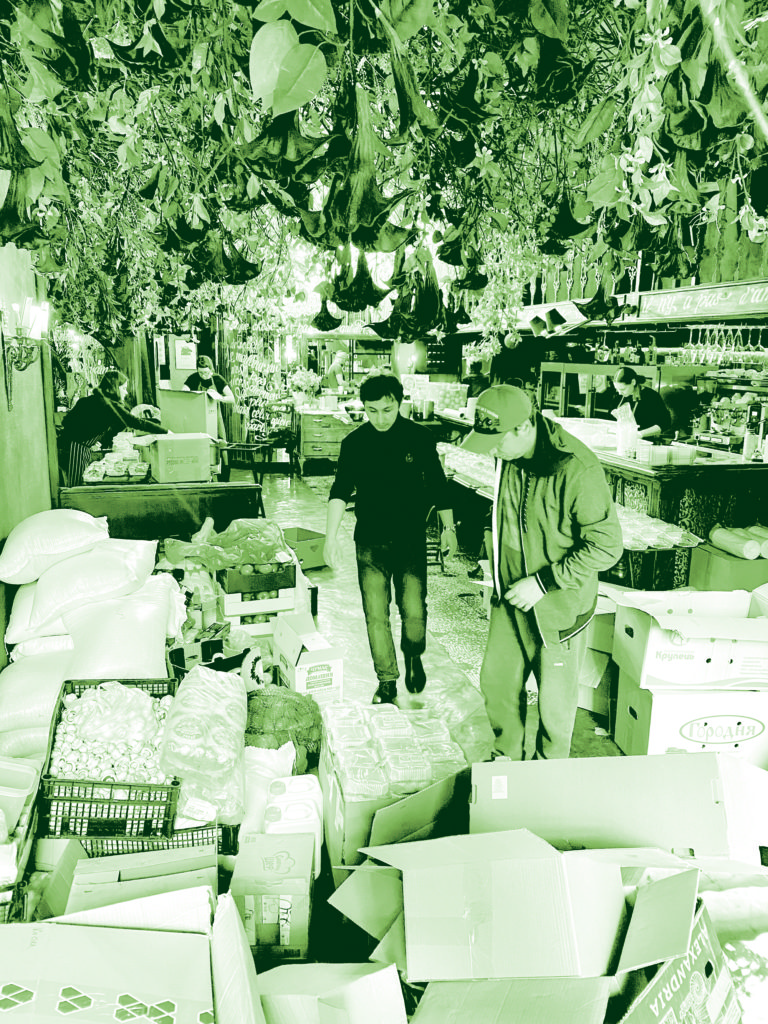
Gathering supplies for the people affected by the conflict.
Photo / One Love & Seven Seas Coffee
Eric Dobbs reflects on the profound impact that the closure of One Love would have, “It extends beyond depriving 900 first responders and military personnel of food and coffee—it also affects families and the community, robbing them of a haven where they can truly connect. Despite the relentless war, One Love continues to keep its doors open, serving as a sacred place of love, joy, and connection. Community gatherings, chess tournaments, and music events are hosted by the café to inspire hope and sustain a sense of freedom, even in the face of adversity.” The story of One Love showcases the resilience of small businesses in Ukraine and their ability to make a positive impact on their community, even in the midst of a conflict that has taken away their freedom.
As I sit here reflecting on these stories of coffee and community, I am f i l led with a deep sense of gratitude and hope. Gratitude for the experiences and connections that coffee has brought into my life, and hope for the potential it holds to bring people from all walks of life together. These tales remind us that no matter where we come from or what challenges we face, there is always room to build strong, supportive communities through a shared love for this beloved beverage.









NO COMMENT